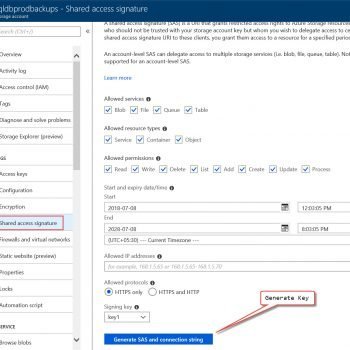SQL Server 2016 brought several innovations. One of the most anticipated feature additions was the ability to define foreign keys with InMemory tables. I wrote about this feature earlier on blog at: SQL SERVER 2016 – InMemory OLTP support for Foreign Key.
Though this was a great addition, I always felt there were restrictions still to know and understand. The twist to the previous blog was to create a Foreign key on a standard disk based table. I went about using the below script for the same.
CREATE TABLE Products ( ProductID INT CONSTRAINT pk_products_pid PRIMARY KEY NONCLUSTERED HASH (ProductID) WITH (BUCKET_COUNT = 10000), ProductName VARCHAR(25) ) WITH ( MEMORY_OPTIMIZED = ON, DURABILITY = SCHEMA_AND_DATA); GO CREATE TABLE ProductSales ( SalesID INT CONSTRAINT pk_productSales_sid PRIMARY KEY, ProductID INT CONSTRAINT fk_productSales_pid FOREIGN KEY REFERENCES Products(ProductID), SalesPerson VARCHAR(25) ) GO
I was pleasantly surprised that an error message popped up. I am showing the same below:

Msg 10778, Level 16, State 0, Line 1
Foreign key relationships between memory optimized tables and non-memory optimized tables are not supported.
This was a great learning that was worth a share via blogs. Though the foreign key addition was lesser known to many, even more lesser known is the fact that it cannot be across disk based tables and in-memory tables. Do let me know if you were aware of this?
Reference: Pinal Dave (https://blog.sqlauthority.com)






1 Comment. Leave new
How can I fixed it:)
The feature ‘CASE’ is not supported with natively compiled modules.